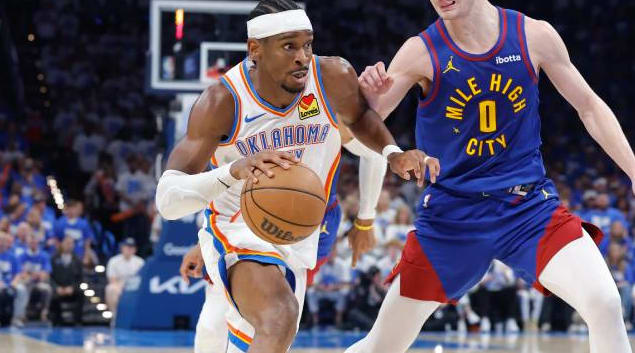The Give and Go
Article first appeared on 10/23/09
From: Charlie Zegers
To: Justin Phan
Sent: Thu, October 22, 2009 8:55:38 AM
Subject: Give and Go
A friend of mine was telling me about a unique scoring system they use in his home league.
Years ago, when the league was set up, they decided that shooting free throws was something that didn't necessarily require NBA talent to do. A regular guy, with enough reps in his driveway, can make himself into a fairly credible free-throw shooter, they reasoned. Therefore, they threw out FT% as a category. They also decided they wanted to put a premium on superstars, so they doubled the points category.
My immediate reaction: "So that makes Dwight Howard a top-three pick, huh?"
It's interesting how much a given player's value can change depending on scoring system. In head-to-head leagues, Howard is a monster. In straight roto, some consider him a liability. In the league you and I are in together, he went seventh overall… which drew more than a few raised eyebrows. Where do you rate Howard in a straight roto eight or nine-category league?
And while we're on the topic of scoring systems, which do you prefer? Which scoring system do you think best connects fantasy value and real-world player value?
From: Justin Phan
Sent: Thursday, October 22, 2009 12:54 PM
To: Charlie Zegers
Subject: Re: Give and Go Opener
Very relevant observation there Zegers, as the "Where should we rank Dwight Howard?" question seems to come up time and time again during each offseason. The reason why it has become such a divisive issue has to do with two things: our natural tendency to be drawn to marquee names, and fundamental differences between the head-to-head and rotisserie schools of thought.
I can understand how it can be off-putting for casual fantasy hoops players to see Dwight Howard ranked in the 40s given his reputation as the league's premiere center. This stems from an assumed expectation that a player's real-life value is supposed to directly translate into fantasy value, a standard which is a bit unrealistic in and of itself, but we'll get to that later.
The key to success in the fantasy realm is really the ability to be able to look past the marquee names in order to be as objective as possible. In Howard's case it is crucial to listen to what the numbers tell you -- that is, he was ranked 48th in standard nine-category leagues last season on a per-game basis. Talk all you want about his phenomenal rebound and block averages, but his contributions in those two areas are completely negated (and then some) by his combined negative impact in free-throw percentage and turnovers.
In a head-to-head league where punting a category is a viable strategy (often times encouraged), I would have no problem taking Howard as high as fifth overall. The road map is pretty clear past that -- targets include Andre Iguodala, Tim Duncan, Josh Smith, Rajon Rondo, Emeka Okafor, Andris Biedrins, Paul Millsap, Trevor Ariza, etc.
In a ROTO format is where things obviously get tricky. From a pure value standpoint I would put him right near 20th overall in a eight-category format and 40th in a nine-category format. But it is hardly that simple. Ranking Howard is one thing, but drafting him and having to build your team around him is something completely different. I've seen articles detailing how to win with Howard in ROTO leagues, and just have to say that it is a LOT easier said than done. The circumstances have to be right for you to even try to attempt to do it -- a deep, competitive league with active managers where the standings are tightly packed from top to bottom. Even then, people are often confused about what to do exactly. Do you punt the category, or do you try to cover his free-throw percentage over the course of the draft?
The question really shouldn't be about where to rank him on cheatsheets. It should be whether drafting Howard in a ROTO league is even worth the trouble. What's your stance on this?
Also, do you think fantasy basketball values should reflect a player's real-life value? And if so, how would we be able to measure a player's real-life value? Where would we even begin?
From: Charlie Zegers
To: Justin Phan
Sent: Thu, October 22, 2009 10:33:33 AM
Subject: RE: Give and Go Opener
Of course fantasy basketball values SHOULD reflect a player's real-life value. I mean… we're drawn to fantasy sports games because we love the sports, not because we love working with numbers. If there isn't some connection between fantasy player value and real-life basketball value, all these cheat sheets might as well be actuarial tables.
That said, I've yet to see the fantasy game - in any sport - that does an ideal job of tying fantasy value to reality. Fantasy games are based on statistics, and the statistics used tend not to paint a complete picture of a given player's value. I think the disconnect between stats and reality is particularly obvious in basketball, where a given player's stats rely so much on what the other four guys on the floor are doing at any one time and where the pace of the game can have such a huge influence. So, we do the best we can, and guys like you and me can keep drawing paychecks by explaining that, while Dwight Howard is almost certainly one of the five most valuable players in the league, especially given his age - his value in most fantasy leagues doesn't approach that level.
Fantasy NFL games have the same problem - line play is such a huge part of the NFL game, but in fantasy it's a total afterthought - but it's more pronounced in NBA games because there's always a few real-life superstars - Howard, Shaq in his prime, Tim Duncan to a lesser extent, even Wilt Chamberlain, if fantasy hoops had existed in his day - that are liabilities in standard roto leagues.
Maybe the standard is the problem.
There are a couple kinds of category killers, but the ones we talk about most often are the horrendous free-throw shooters. Maybe my friend's league has the right idea, eliminating FT% as a category and replacing it with something else. After all, a player's ability to sink free throws is built in to his scoring totals anyway.
As for whether or not building a team around Howard is worth the hassle… I look at it this way. I've been playing in the same AL-only keeper auction baseball league for going on 20 years, and closers are always overpriced. So at the beginning of the auction, I'll try to get a Mariano Rivera or a Joe Nathan for a reasonable number… but if I can't, I'm not going to throw money at iffy values. I'll adapt my strategy, invest the money elsewhere and punt on saves.
I wouldn't go into a draft aiming to pick Howard in the first round and build around him. But if I was sitting on pick number 25-30 or so, and Howard was available, I'd probably take a chance on him and try to build from there.
From: Justin Phan
Sent: Thursday, October 22, 2009 5:30 PM
To: Charlie Zegers
Subject: Re: Give and Go Opener
What has become more apparent to me each time this issue comes up is that the problem does not lie within the standard itself. I have read through dozens of proposed scoring systems that are intended to make a player's fantasy value more in tune with his real-life value, but what ends up happening is that the current discrepancies just get replaced by even more.
Dwight Howard's negative impact with respect to free-throw percentage is an extreme case, an exception really. You won't find a similar categorical impact from another player in any of the other eight categories. It's impractical to change the entire system just because of one glaring exception. Sure you'll bump Howard up to fourth overall in per-game value by eliminating free-throw percentage entirely as a category, but you'll also get Andris Biedrins coming in at seventh overall.
The problem I have with this term 'real-life value' is that we have not even come close to defining it. How would we definitively know that Player A has more value than Player B? Which metric do we use? There's PER, win score, win shares, Roland Rating. The list goes on. We could probably come to some sort of loose agreement of who would make the top-10, but it gets pretty muddled if you move beyond that.
The beauty of fantasy basketball, and the reason I am semi-obsessive over it, lies in the challenge of predicting player performance and finding the right players to build a winning team. I'm not drawn to it because I think the value system mirrors what goes on in real-life. Because that's not what it is all about. The question should be about finding the best scoring system to play fantasy basketball, not to find the best scoring system that measures a player's real-life value.

























